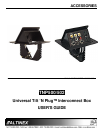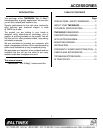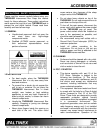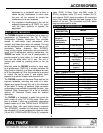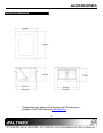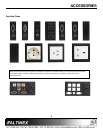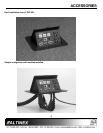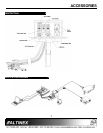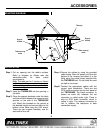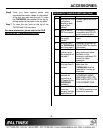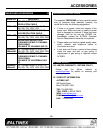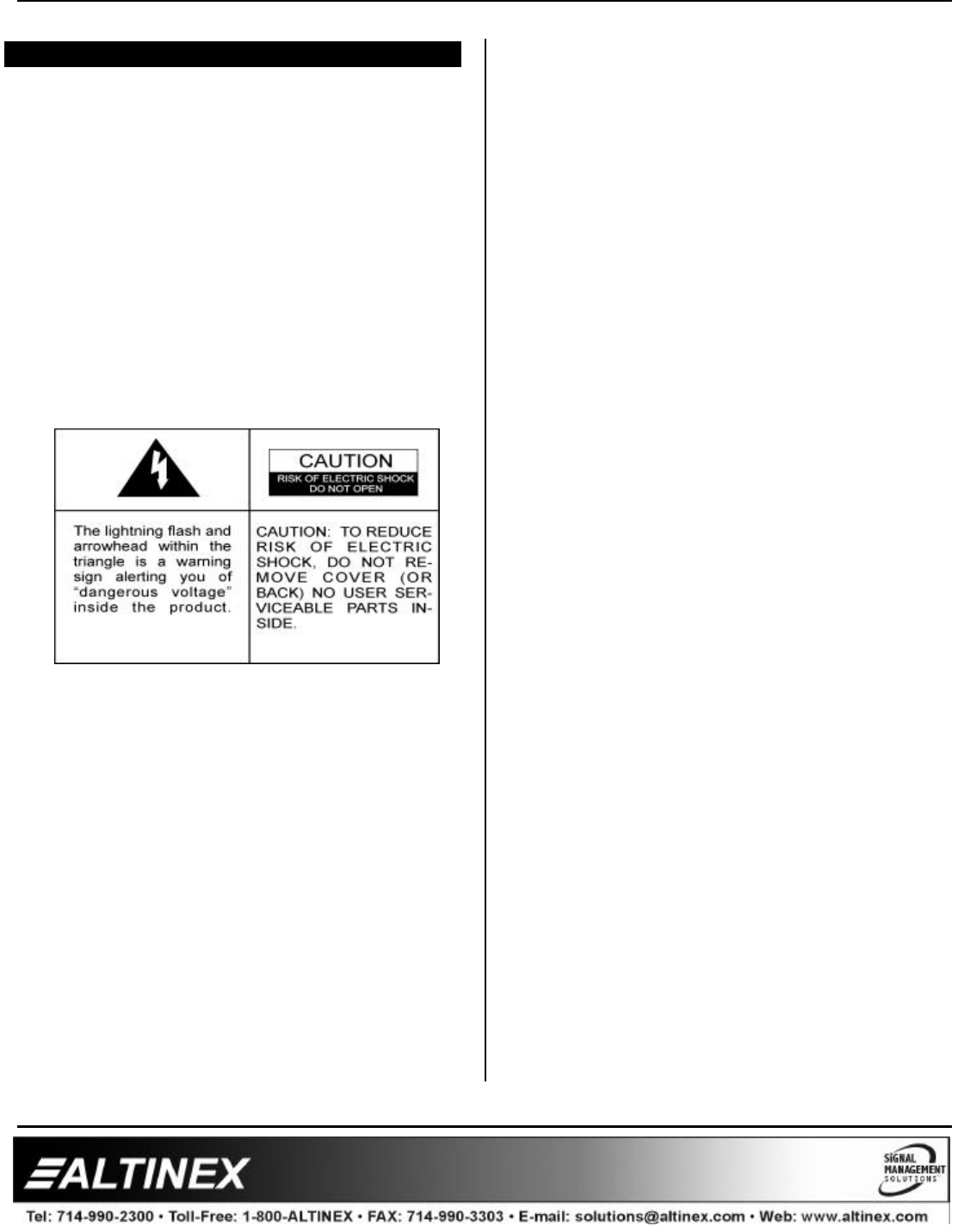
ACCESSORIES
2
PRECAUTIONS / SAFETY WARNINGS 1
Please read this manual carefully before using your
TNP500/502 Interconnect Box. Keep this manual
handy for future reference. These safety instructions
are to ensure the long life of your TNP500/502 and to
prevent fire and shock hazard. Please read them
carefully and heed all warnings.
1.1 GENERAL
• Unauthorized personnel shall not open the
unit since there are high-voltage
components inside.
• Qualified ALTINEX service personnel, or
their authorized representatives must
perform all service.
1.2 INSTALLATION
• For best results, place the TNP500/502
Interconnect Box in a dry area away from
dust and moisture.
• To prevent fire or shock, do not expose this
unit to rain or moisture. Do not place the
TNP500/502 Interconnect Box in direct
sunlight, near heaters or heat radiating
appliances, or near any liquid. Exposure to
direct sunlight, smoke, or steam can harm
internal components.
• Handle the TNP500/502 Interconnect Box
carefully. Dropping or jarring can damage
internal components.
• Never place fingers inside the opening on
each side of the unit. This action could
cause serious injury because of the sharp
edges inside of the TNP500/502.
• Do not place heavy objects on top of the
TNP500/502. Do not use excessive force to
push down on the top of the unit.
• To turn off the main power, disconnect the
power cord, which powers the power socket
on the TNP500/502 pop up panel. The
power outlet socket should be installed as
near to the equipment as possible, and
should be easily accessible.
• We recommend using wall outlets with a
Ground Fault Circuit Interrupter (GFCI) for
maximum protection.
• Install all cables according to the
instructions. Do not force or pull out any
cable or power cord that is attached to the
TNP500/502 Interconnect Box.
1.3 CLEANING
• Surfaces should be cleaned with a dry cloth.
Never use strong detergents or solvents,
such as alcohol or thinner. Do not use a wet
cloth or water to clean the unit.
1.4 FCC / CE NOTICE
• This device complies with part 15 of the
FCC Rules. Operation is subject to the
following two conditions: (1) This device
may not cause harmful interference, and (2)
this device must accept any interference
received, including interference that may
cause undesired operation.
• This equipment has been tested and found
to comply with the limits for a Class A digital
device, pursuant to Part 15 of the FCC
Rules. These limits are designed to provide
reasonable protection against harmful
interference when the equipment is operated
in a commercial environment. This
equipment generates, uses, and can radiate
radio frequency energy and, if not installed
and used in accordance with the instruction
manual, may cause harmful interference to
radio communications. Operation of this



